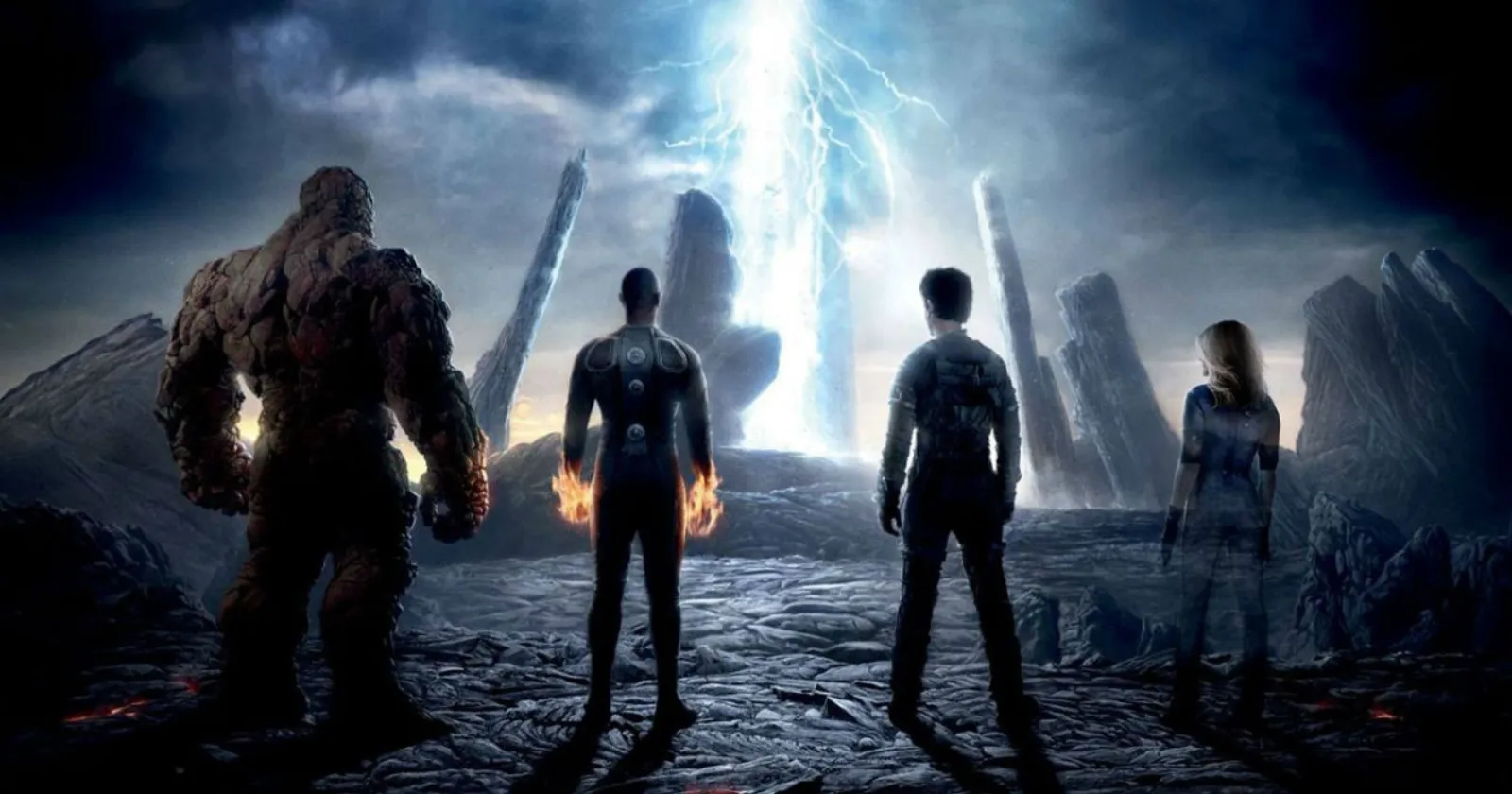Fantastic Four (2015), often mockingly stylized as Fant4stic thanks to its awkward poster design and misfire of a marketing campaign, has become something of a cinematic punchline in the decade since its release. Directed by Josh Trank, this reboot of Marvel’s original superhero family has been dissected, dismissed, and memed into infamy. Revisiting it now, some of the initial scorn still holds, but with a bit of distance, Fantastic Four also serves as a compelling time capsule—a reflection of mid-2010s Hollywood’s frenzied push for its own interconnected superhero universes.

The criticisms leveled at the film upon release remain valid: it’s tonally confused, emotionally hollow, and very obviously the product of heavy post-production interference. Even Josh Trank disowned the final cut, claiming it wasn’t his vision. Still, watching it today—with knowledge of the actors’ later successes and a deeper understanding of where superhero cinema was heading—there’s a strange, fragmented curiosity to it. You can see the ambition buried somewhere beneath the studio mandates and last-minute edits.
The plot follows the familiar Fantastic Four origin, albeit through a darker lens. Miles Teller plays Reed Richards, a prodigy whose interdimensional teleportation experiment ends in disaster, giving him the ability to stretch and contort his body in ways that come off more grotesque than heroic. Kate Mara plays Sue Storm, who gains invisibility and force-field powers, while Michael B. Jordan’s Johnny Storm becomes the Human Torch, capable of flight and flame. Jamie Bell, underutilized and digitally buried beneath rock textures, becomes Ben Grimm, aka The Thing. Their transformation is linked to a journey to “Planet Zero,” where they also inadvertently leave behind Victor Von Doom (played by Toby Kebbell), who later returns as a corrupted version of his former self—merged with his suit, telekinetic, and vengeful.
What distinguishes Fant4stic from other superhero fare of the time is its mood: Trank leans heavily into body horror and grounded realism, evoking David Cronenberg more than Joss Whedon. There are moments, especially early on, where the tone almost works. The film’s more serious approach to the trauma of transformation and government exploitation hints at something bold. But the somber, brooding atmosphere ultimately collapses under the weight of a script that doesn’t support it.
There’s no real sense of camaraderie between the leads. While Teller, Jordan, Mara, and Bell are all individually talented (and would go on to prove it in later roles), the group lacks any convincing familial chemistry. Instead of a tight-knit, dysfunctional family unit, they feel like four characters on separate tracks, forced to collide for plot convenience. The film races through character development in favor of exposition and plot logistics, stacking time jumps and disparate arcs into a runtime that barely clears 100 minutes.
Worse still, Fantastic Four is so preoccupied with setting up a sequel that never arrived that it forgets to function as a standalone movie. The climactic showdown with Doom—awkwardly staged and emotionally weightless—feels like an afterthought. Without a follow-up to redeem or expand on any of this, Fant4stic exists as a kind of cinematic dead end. It’s not just a bad film—it’s a missed opportunity buried beneath layers of studio interference, a cautionary tale about chasing franchises before building a solid foundation.
Yet, in a landscape now oversaturated with superhero content, there’s something mildly fascinating about how this movie misfires. It’s not the loud, CG-heavy chaos we’ve become numb to. It’s oddly restrained, often too serious, and devoid of spectacle—failing for reasons very different from the typical superhero bomb. But failure it still is.
READ MORE MOVIE REVIEWS: Mission: Impossible – Rogue Nation, Ex Machina, The Blackcoat’s Daughter
Fantastic Four isn’t quite as catastrophically awful as its reputation suggests, but it’s still fundamentally broken—a superhero movie that doesn’t understand its heroes, directed with ambition but sabotaged in execution. The Marvel Cinematic Universe is now set to try again with The Fantastic Four: First Steps, and while there’s still hope for this group to finally get the adaptation they deserve, Trank’s version will likely remain the definitive example of how not to reboot a superhero franchise.
Score: 4/10
Fantastic Four (2015)
- Cast: Miles Teller, Kate Mara, Michael B. Jordan, Jamie Bell, Toby Kebbell, Reg E. Cathey, Tim Blake Nelson
- Director: Josh Trank
- Genre: Action, Adventure, Science Fiction, Superhero
- Runtime: 100 minutes
- Rated: PG-13
- Release Date: August 7, 2015
- Movies Like Fantastic Four: Thunderbolts*, The Marvels, Shazam! Fury of the Gods